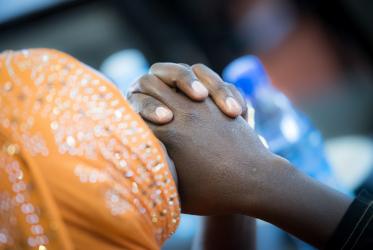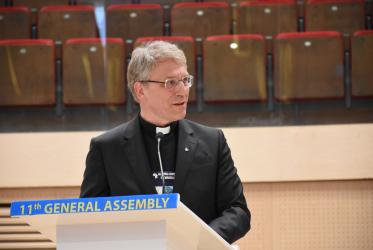Église presbytérienne au Rwanda
(Eglise Presbytérienne au Rwanda, EPR)
The gospel was first preached in Rwanda at the beginning of the 20th century by Catholic missionaries. They were followed in 1907 by Protestants from the German Bethel Mission who came together with Tanzanians to start what became the Presbyterian Church in Rwanda. After the first world war, German missionaries were replaced by Belgians and Swiss, who were joined later by Dutch missionaries. From the very beginning, the evangelistic work was done by Rwandan people who accepted the gospel. Until 1957 the church was concentrated around three main stations, Kirinda, Rubengera and Remera. After it became autonomous in 1959, with the name Evangelical Presbyterian Church in Rwanda, the priority became to extend its presence throughout the whole country. In the process of growth the church changed its name to Presbyterian Church in Rwanda, which was motivated by the refusal to claim the title "evangelical" for itself while it is deeply engaged ecumenically. As the credibility of the church's message depends on its response to misery, poverty, hunger, illness and ignorance, the EPR tries to maintain a balance between the teaching of the biblical message and social engagement through its hospitals, schools and development projects. In the area of evangelism, the church stresses the teaching of a transformative gospel, in a situation where many new churches and groups preach a message which takes people away from the current realities of the country and the society and invites them to flee to heaven.
Like other institutions in Rwanda the 1994 genocide affected the church which lost 16 of its pastors and many other members. In the period consecutive to the genocide much emphasis has been placed on the preparation of the younger generation in peace-building and reconciliation, while the church also faces the challenge of caring for the many orphans and widows, most of whom still suffer from trauma.
The leading organ of the church is the general synod to which all the programmes, institutions and congregations are accountable. It is coordinated by the president of the church assisted by the general secretary. The EPR maintains close relationships with its traditional partners in Rwanda, Africa, Belgium, Switzerland, Germany and the Netherlands and plays an active role in many ecumenical organizations of which it is a member.


